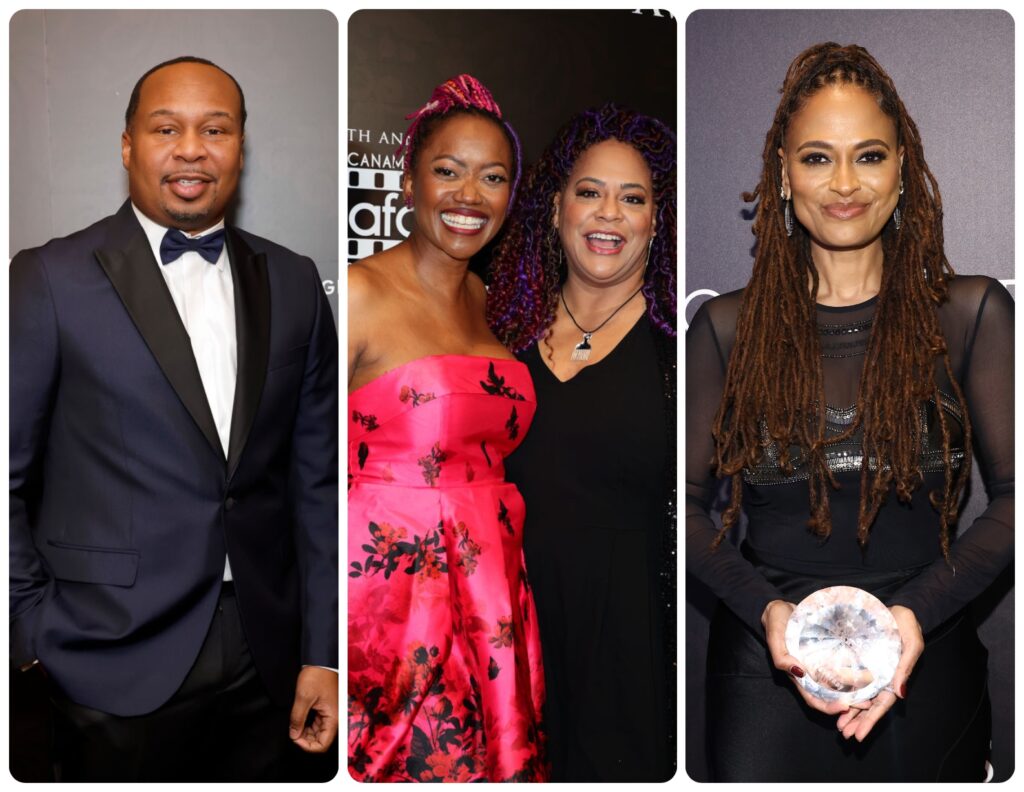Seen on the Black and excellent scene was a night where many flowers were given at the 15th annual African American Film Critics Awards and BOSSIP was on hand to bear witness.
Source: Tommaso Boddi/Variety via Getty Images/ Emma McIntyre/ Momodu Mansaray / Getty
Held at the glamorous Beverly Wilshire Hotel, the awards ceremony celebrated Black storytelling and excellence in luxury. The event was hosted by comedian and The Daily Show veteran, Roy Wood Jr., who was ready to clock in and get the party started.
“I’m ready to get out there. Tell a couple of jokes there and get out the way,” Roy told BOSSIP’s Char Masona. “Your job as a host is to say why we’re here, give everybody that’s late a chance to sit down and get out the way.”
Before starting his official hosting duties, Roy spoke about the importance of the AAFCA Awards amid book bans and the cancellation of Black television shows.
“Our stories have to be amplified, and if we don’t do it ourselves, it’s not going to get done by any other groups. That’s why an event like this is so pivotal,” Wood said. “Because when you look at Black film critics, they are as pivotal as the black film creators because the film critics have to create the conversation and the dialogue that creates the buzz that creates the demand.”
Living Single legends, Kim Coles and Erika Alexander also walked the carpet, giving everyone a sweet nostalgic moment as they posed together.
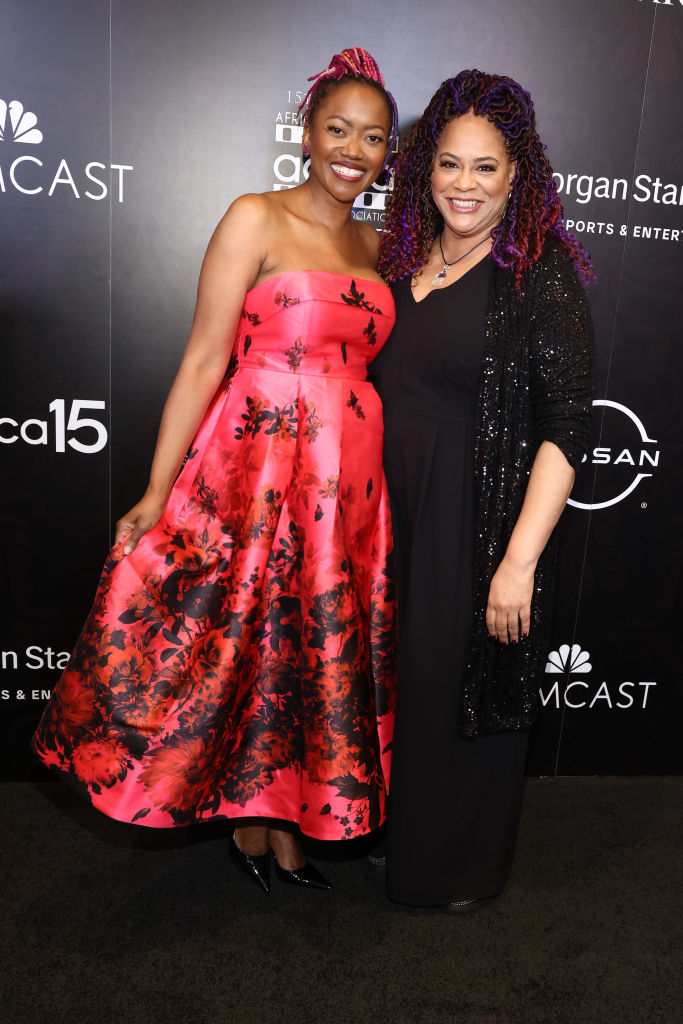
Source: Variety / Getty
Coles discussed the significance of events like the AAFCA awards, especially for young creators.
“Young creatives and directors, writers, producers, and actors need to see that this is possible. If someone had an idea and one day that idea became [this], award nominations and black carpets and all of the things, all the fancy things. And you don’t do it for the fancy things, but you do it because the flowers are coming, so do the work.”
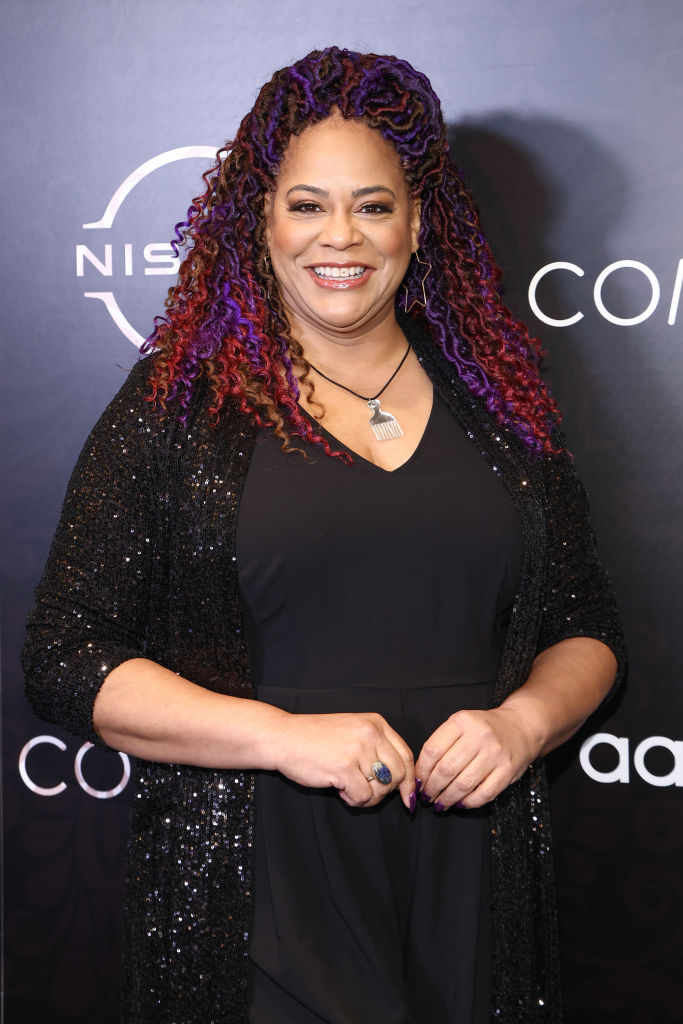
Source: Variety / Getty
Coles also talked about how much she loved American Fiction, which stars her Living Single co-star, Erika Alexander.
“I loved it not only because my girl Erika was in it, I loved it because it was poignant,” Coles said. “I loved it because I’m one of those black people who’s very aware that there’s no one black person and that there are times that we have to decide whether or not we want to change our voice or not in order to fit in.”
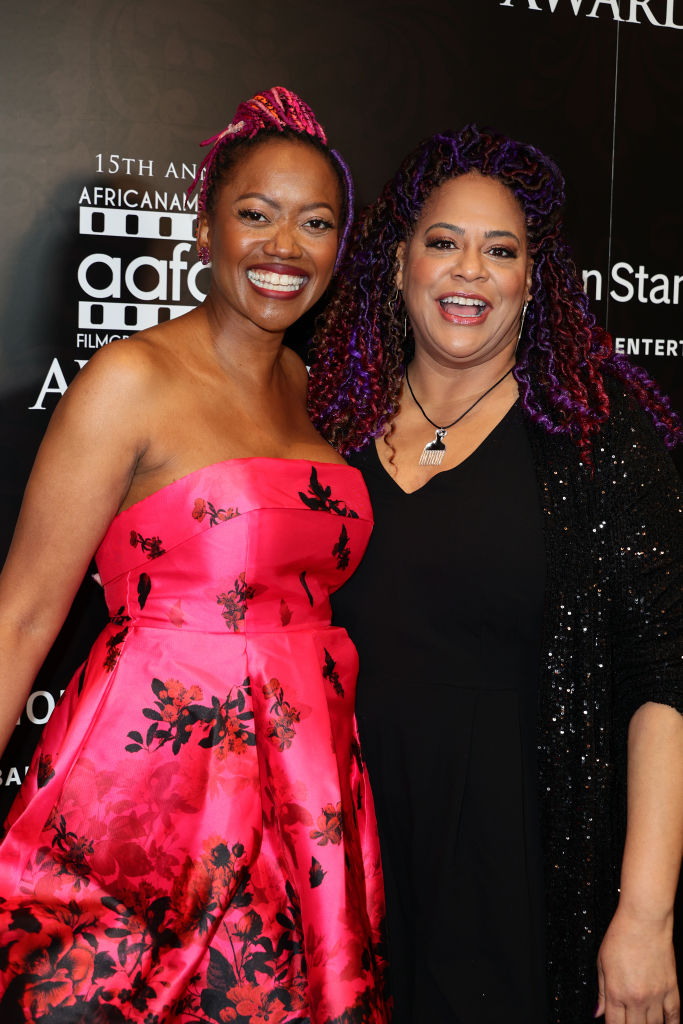
Source: Momodu Mansaray / Getty
BOSSIP spoke with Alexander about how stories can showcase humanity, especially among African Americans.
“Amplifying stories of any kind is always important. That’s how humans tell stories. That’s how we live history through storytelling. It’s very important for African Americans, because if you’ve been denied humanity, denied the certain media presence that other people might have had for hundreds of years, Alexander said. “Media is one thing. But books, Speeches, all these things, if they’ve been censored, then you’re desperately trying to tell a story so people see your humanity because you need them to have empathy so you can get things done so you can live.”
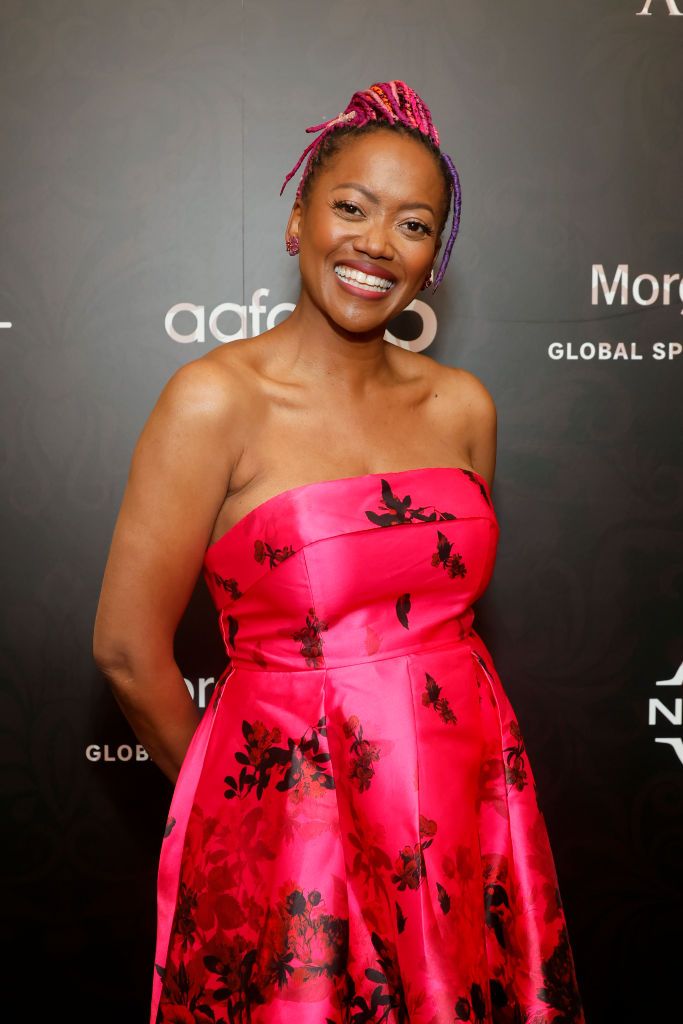
Source: Emma McIntyre / Getty
Alexander’s film American Fiction was amongst the many films celebrated at the AAFCA awards. Other lauded films included The Color Purple, Origin, Rustin, The After, A Thousand and One, and more. The ceremony also paid homage to legends like legendary director and playwright George C. Wolfe. Other honorees included Ava DuVernay, Colman Domingo, Danielle Brooks, Da’Vine Joy Randolph, Aunjanue Ellis, Jeffrey Wright, Cord Jefferson, Misty Copeland, David Oyelowo, and more.
Da’Vine Joy Randolph & Danielle Brooks Won Big At The AAFCA Awards
Although the night was full of great moments, what stood out the most was the homage that many award-winners paid to other actors and industry trailblazers.
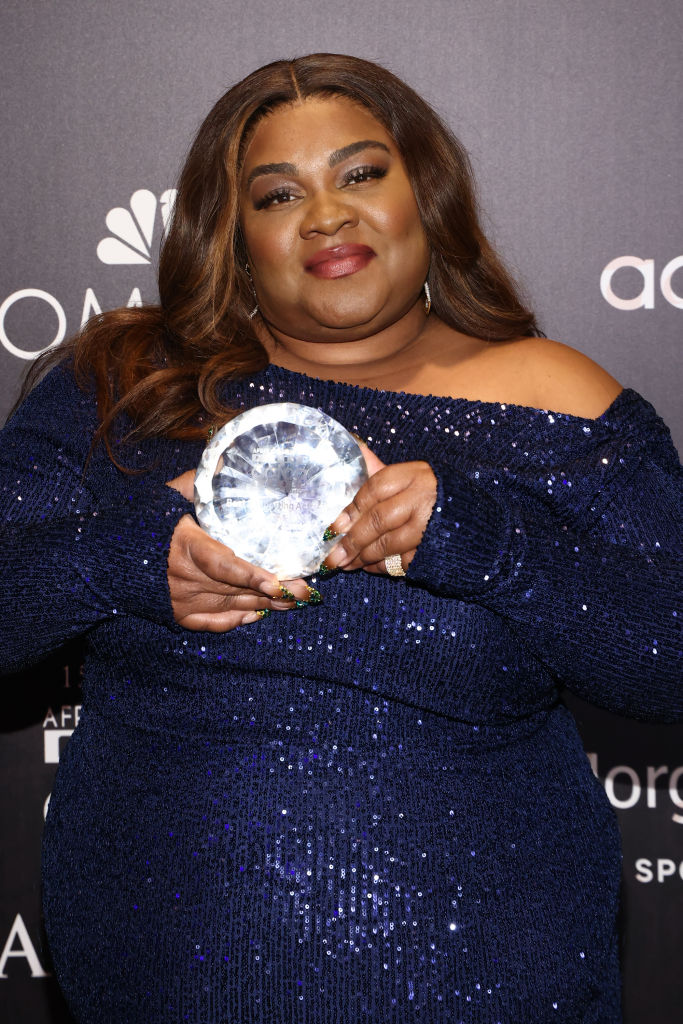
Source: Variety / Getty
Da’Vine Joy Randolph and Danielle Brooks accepted Best Supporting Actress Awards for their roles in The Holdovers and The Color Purple. Both actresses have been nominated in the same category for almost all of the award season, so they took time to show love to one another during their acceptance speeches.
“I want to say congratulations to Danielle. I have known Danielle for years and I’m elated to see you get your flowers,” Randolph said. “ My baby, they have no idea. You have just hit the surface.”
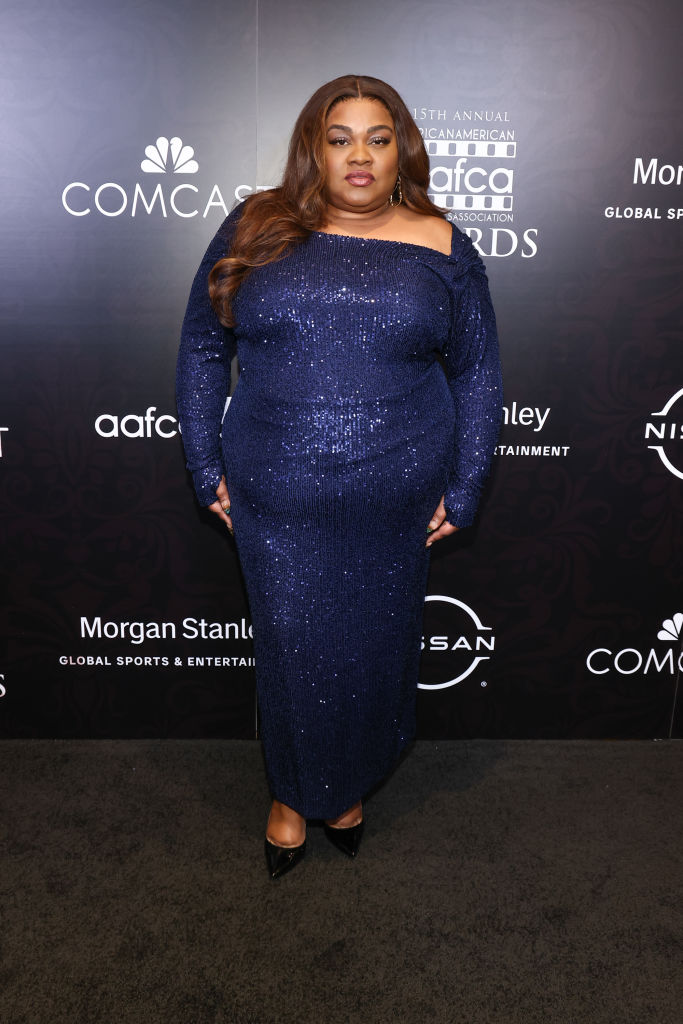
Source: Variety / Getty
In Brooks’ speech, she talked about her longtime friendship with Randolph.
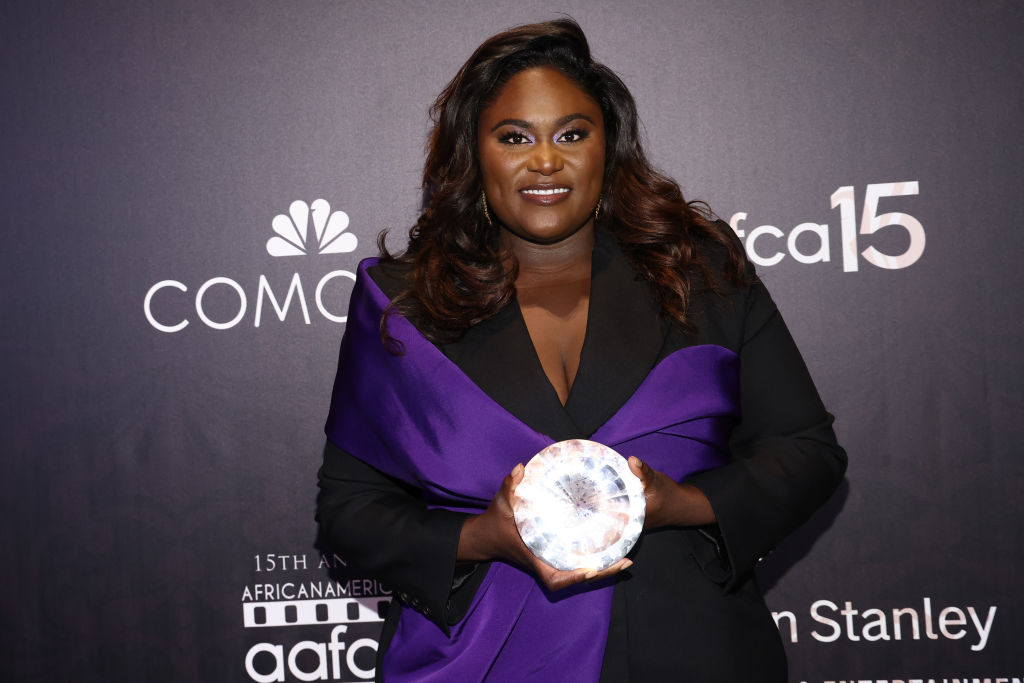
Source: Variety / Getty
“It’s great to share this with her, but we actually met in the beginning of our careers when she was at Yale and I was at Juilliard. To get to share this moment with her, it means something,” Brooks said. “Because at the time it felt like there could only be one of us and that is not true, we’re breaking that. We’re both up here winning, it’s beautiful.Two Black Cornbread-fed girls.”
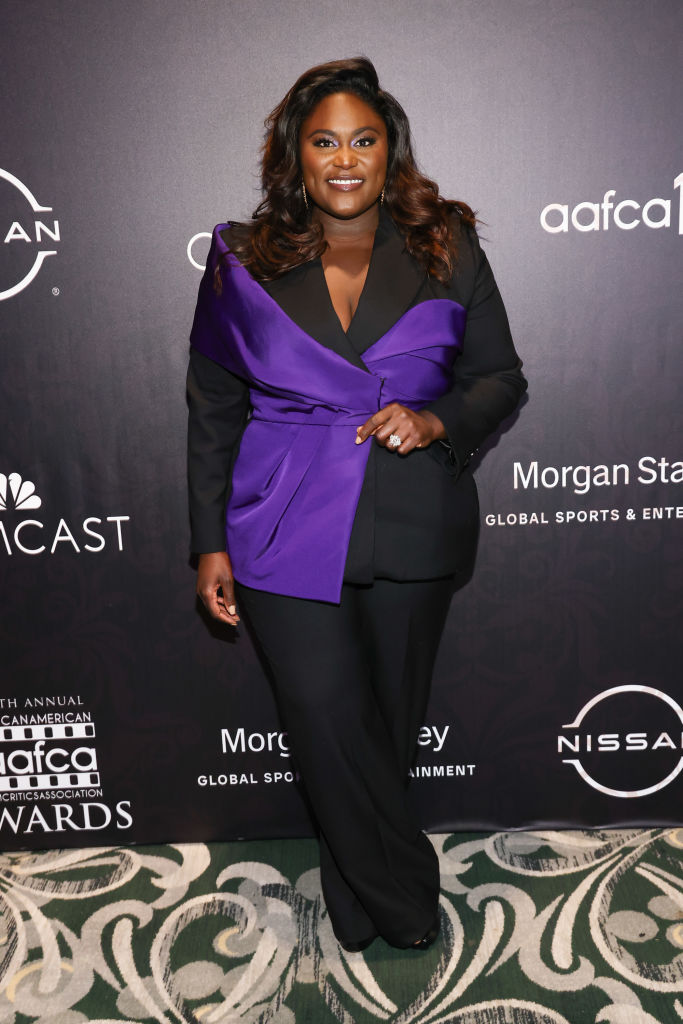
Source: Variety / Getty
Another notable moment was American Fiction writer and director Cord Jefferson thanking Legend Award-recipient Jeffrey Wright for “taking a risk” and working with him on his very first film.
“I’d never directed anything before this film, I’d never written anything before this film,” Jefferson said. “The first person that I sent it to was Jeffrey whose work I’ve loved since I was boy and I watched him play Jean-Michel Basquiat.”
The “evening of flowers” continued when living legend Debbie Allen surprised the crowd as she walked on stage to present Ava DuVernay with the award for Best Director.
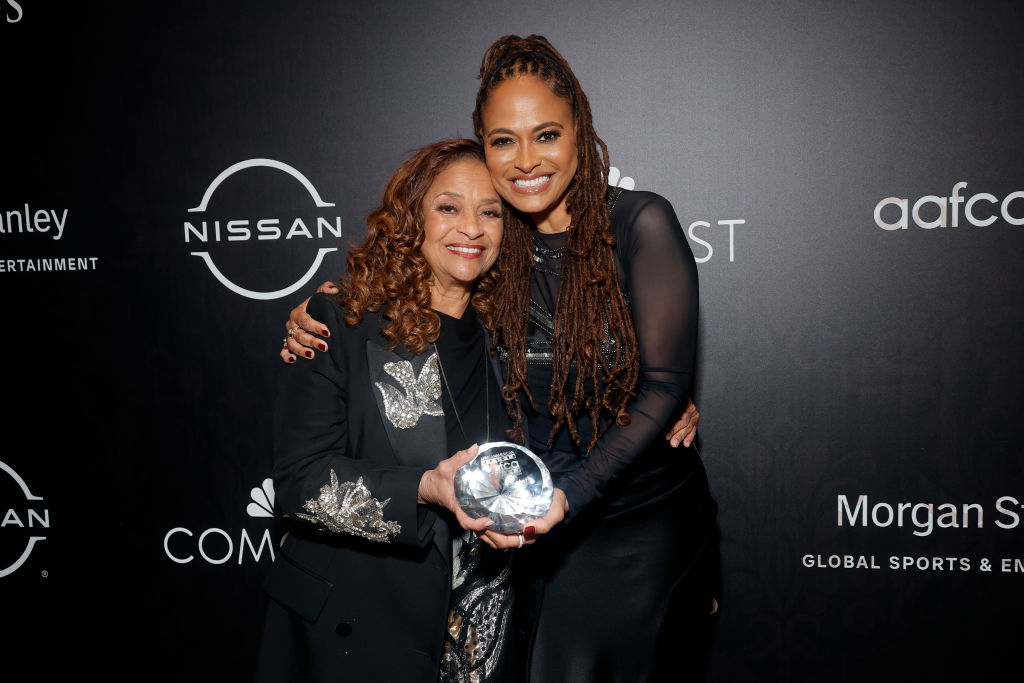
Source: Emma McIntyre / Getty
When DuVernay took the stage to receive her award, she started her speech by honoring Debbie Allen’s incredible career.
“Because she has choreographed 10 Academy Award ceremonies and also choreographed for a few folk like Michael Jackson, Whitney Houston, Mariah Carey, even Dolly Parton, and she also has Golden Globe Awards for acting and three Emmys for choreography. Also Tony Award nominations. We might forget that this woman is a director,” DuVernay said. “Because she’s done all those other things, we forget that this woman is one of the foremothers of Black directors, Black women directors, especially. She did it first, bravely, boldly and beautifully.”
DuVernay also chatted with BOSSIP on the carpet about the importance of Black storytelling and having access to books.
“Black storytelling is not only important in this moment right now, but always, storytelling in general. The availability of books of knowledge is something that we must fight for, and we must pay attention to. Books are being pulled off shelves. Librarians are being criminalized,” DuVernay said. “So it’s something that we all need to really pay attention to before we look up and those rights are gone. Black people have been at the forefront of securing these rights and so we must stay at the forefront of protecting them.”
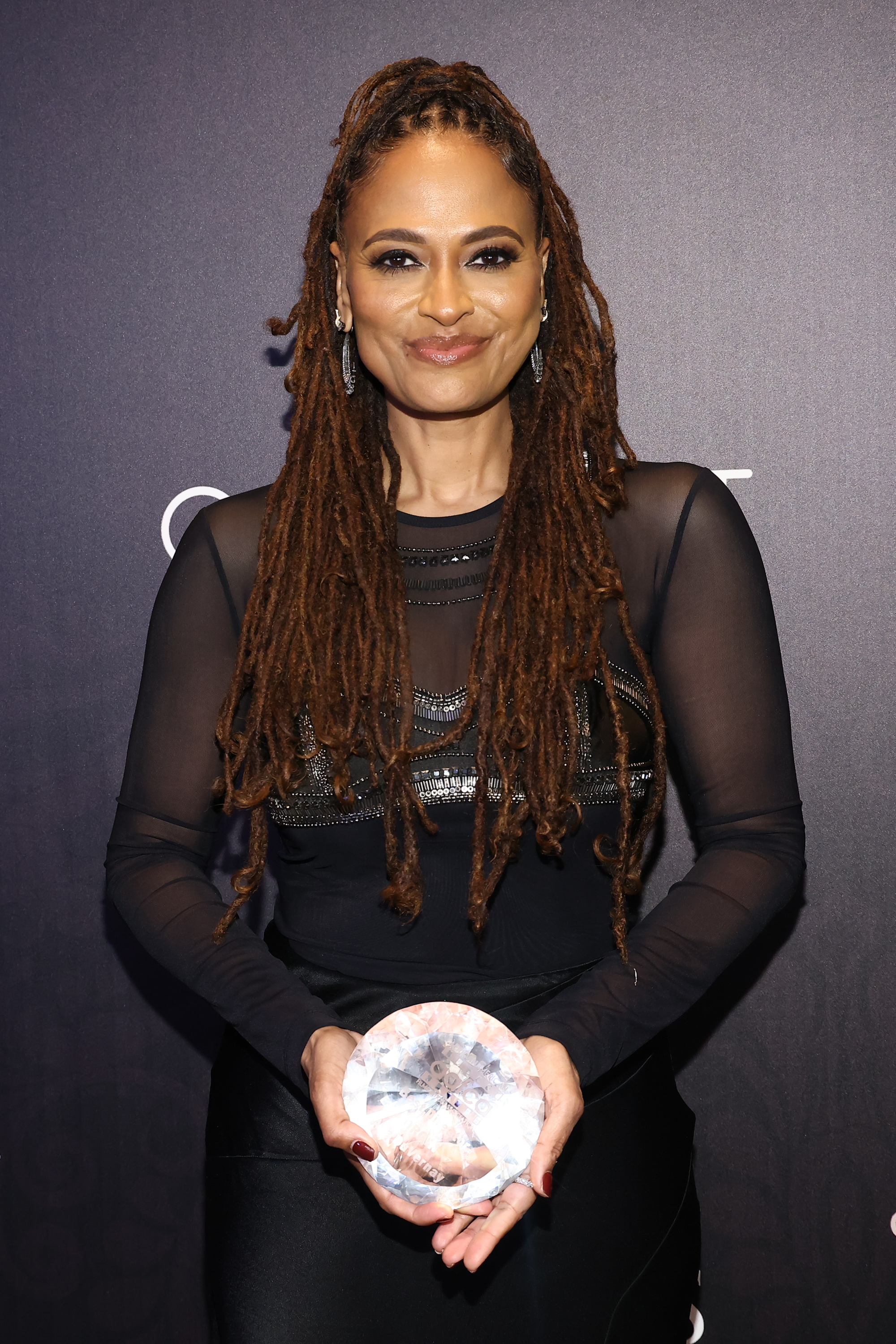
Source: Tommaso Boddi/Variety via Getty Images / Getty
Amidst ongoing efforts to erase Black history and literature in schools, the African American Film Critics Association is doing the work to ensure that our stories are preserved and applauded.

